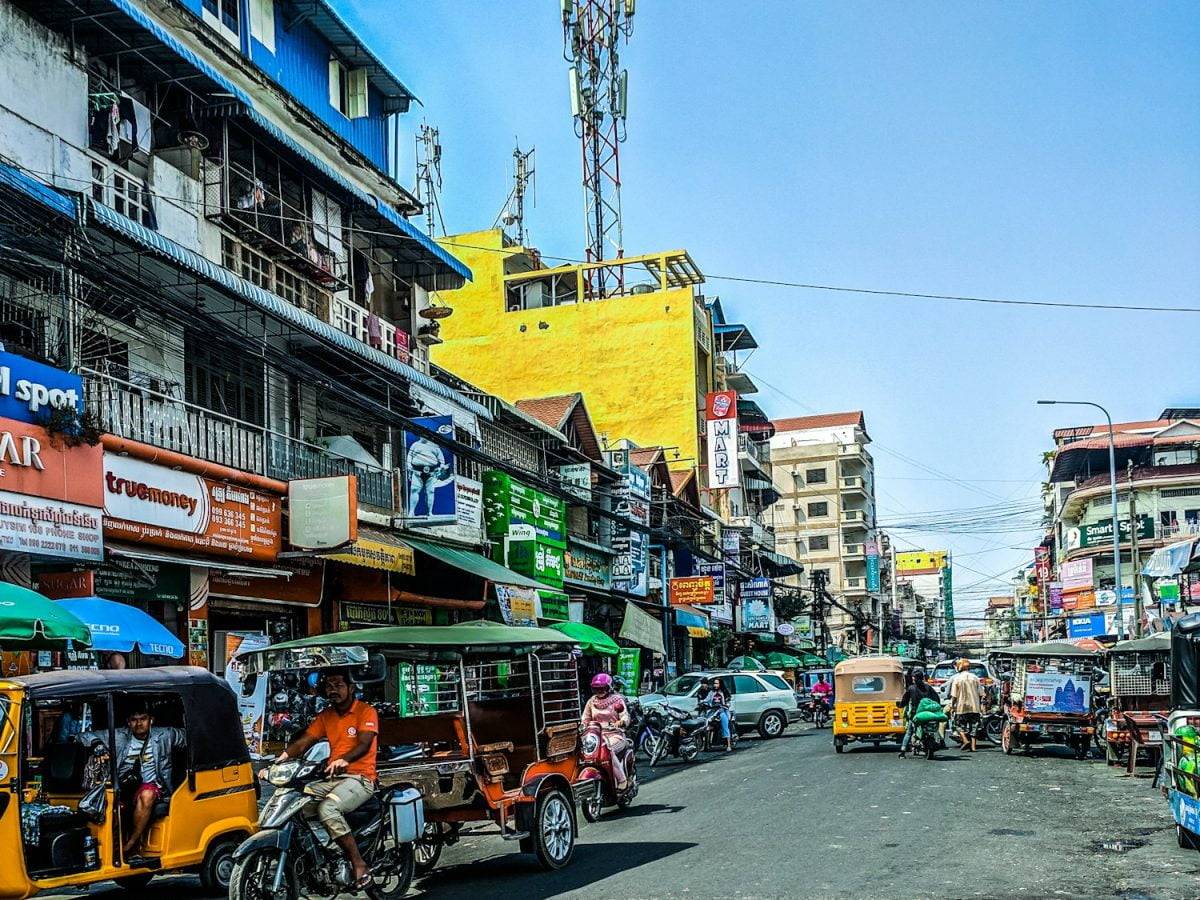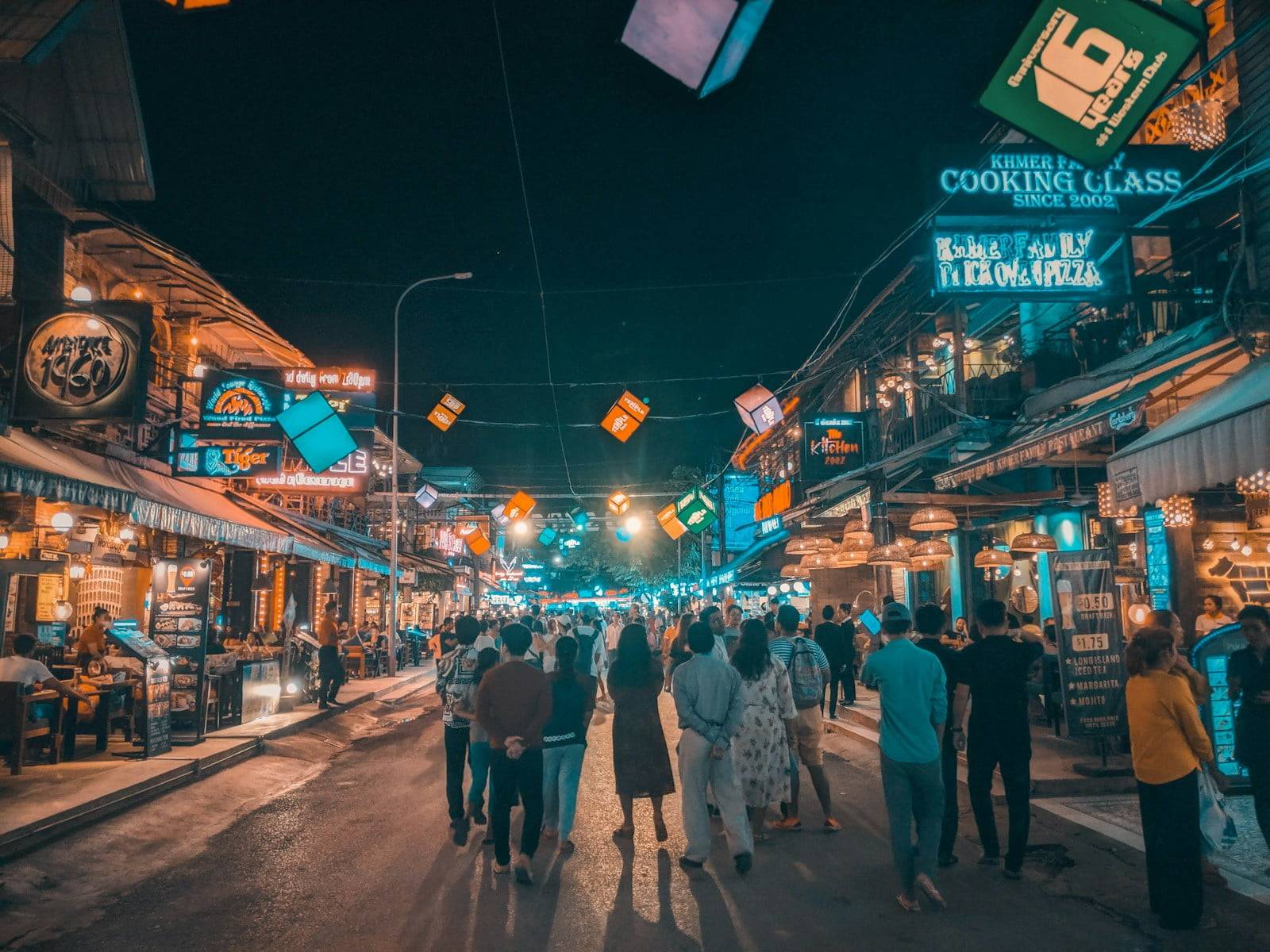Understanding Cambodia’s Cultural and Social Norms
To ensure a safe and enjoyable trip to Cambodia, it is essential to understand and respect the local cultural and social norms. One of the foremost considerations is the appropriate dress code, particularly when visiting temples and religious sites. Visitors should wear modest clothing, covering shoulders and knees, as a sign of respect. Lightweight, breathable fabrics are recommended due to the country’s warm climate.

Respectful behavior towards monks and elders is another crucial aspect of Cambodian culture. Monks hold a revered position in society, and it is important to show them respect. When interacting with monks, avoid physical contact and refrain from handing items directly to them, especially if you are a woman. Additionally, always address elders politely and show deference in their presence, as respect for seniority is deeply ingrained in Cambodian society.
Social etiquette in Cambodia includes polite greetings and maintaining decorum in public spaces. The traditional greeting, known as the “sampeah,” involves placing the palms together in a prayer-like gesture while bowing slightly. Higher placement of the hands signifies greater respect. Public displays of affection are generally frowned upon, and it is advisable to avoid them to maintain propriety.
Being aware of local customs and traditions is vital, as they can vary between urban and rural areas. In rural communities, traditional practices are often more strictly observed. For example, visitors should be mindful of local festivals and ceremonies, which are integral to Cambodian cultural life. Participation or observance should be conducted with sensitivity and respect.
Understanding and respecting these cultural and social norms will not only enrich your travel experience but also foster positive interactions with the local community. By adopting a respectful and considerate approach, travelers can enjoy a harmonious and memorable visit to Cambodia.
Travel Safety Tips
- Always negotiate and agree on a fare before beginning your journey in tuk-tuks or taxis without a meter.
- For buses and flights, compare prices online and book in advance for the best deals.
- Consider using your Visa card for booking tickets for its convenience and the added layer of financial security it provides.
Staying Safe in Urban and Rural Areas
Cambodia presents a unique blend of urban vibrancy and rural tranquility, each demanding distinct safety measures. In bustling cities like Phnom Penh and Siem Reap, vigilance is paramount. The crowded streets, while rich with culture and activities, can also be hotspots for petty crimes such as pickpocketing and scams. Visitors should keep personal belongings secure and be cautious of overly friendly strangers offering unsolicited help or services. It is advisable to use reputable transportation options such as registered taxis or ride-hailing services like Grab to ensure safe travel within the city.
When navigating urban centers, avoiding secluded areas at night and sticking to well-lit, populated streets can mitigate risks. Tourists should also be aware of common scams, including inflated prices for goods and services, and always negotiate fares beforehand or ensure meters are used in taxis. Utilizing hotel safes for valuables and carrying only essential items during outings can further reduce the risk of theft.
In contrast, rural areas in Cambodia require different precautions. The countryside, while serene and picturesque, can pose hazards like unexploded landmines in some regions. It is crucial to stay on established paths and avoid venturing into unmarked territories. Local guides can provide valuable insight and ensure safer exploration of these areas.
Medical facilities in rural locales may be limited, so travelers should carry a well-stocked first aid kit and any necessary medications. It’s also prudent to have travel insurance that covers medical evacuation, should the need arise. Communication can be another challenge in remote areas; therefore, ensuring that mobile devices are fully charged and having a backup power source can be lifesaving. Downloading offline maps and keeping emergency contact numbers handy are also recommended.
By taking these precautions, visitors can enjoy the rich experiences Cambodia has to offer while minimizing potential risks in both its urban and rural landscapes.
Health Precautions and Medical Preparedness
When planning a trip to Cambodia, prioritizing health precautions and medical preparedness is essential. One of the first steps is to ensure you are up-to-date with necessary vaccinations. The Centers for Disease Control and Prevention (CDC) recommends vaccines for hepatitis A and B, typhoid, and Japanese encephalitis, depending on the duration and nature of your stay. Additionally, consider a tetanus booster if it has been more than ten years since your last shot.
Malaria and dengue fever are prevalent in certain regions of Cambodia. Therefore, it is advisable to take preventive measures against mosquito bites. Using insect repellent containing DEET, wearing long-sleeved clothing, and sleeping under mosquito nets can significantly reduce the risk of these diseases. Consult with a healthcare provider about taking antimalarial medications if you plan to visit rural areas where malaria is more common.
Staying hydrated is vital, especially in Cambodia’s tropical climate. It is recommended to drink bottled or purified water to avoid waterborne diseases. Be cautious with food consumption as well; opt for freshly cooked meals and avoid raw or undercooked foods. Fruits and vegetables should be washed thoroughly or peeled to minimize the risk of gastrointestinal illnesses.
Accessing medical care in Cambodia can be challenging, particularly in remote areas. Identifying reputable clinics and hospitals before your trip is crucial. Phnom Penh and Siem Reap have some well-regarded medical facilities that cater to expatriates and tourists. However, for more serious conditions, evacuation to a neighboring country with advanced healthcare may be necessary. Therefore, securing comprehensive travel insurance that covers medical evacuation is highly recommended.
In summary, by taking appropriate health precautions and being medically prepared, you can significantly enhance your safety and well-being while visiting Cambodia. Ensure you have the necessary vaccinations, protect yourself against mosquito-borne illnesses, maintain good hygiene practices, and know where to seek medical care if needed. This proactive approach will help ensure a healthy and enjoyable trip.
Emergency Situations and Local Resources
Being prepared for emergencies can significantly impact your safety and peace of mind when visiting Cambodia. Whether you encounter natural disasters, accidents, or theft, knowing the appropriate steps to take is crucial. Familiarizing yourself with the local emergency services and having a backup plan can help you navigate these situations more effectively.
In case of a natural disaster, such as flooding or an earthquake, it is essential to stay informed through local news channels and heed the advice of authorities. For accidents or medical emergencies, immediately contact the Cambodian Emergency Medical Services (EMS) by dialing 119. For fire-related incidents, dial 118 to reach the fire department. In the event of theft or any criminal activity, contact the local police by dialing 117.
Additionally, it is advisable to know the contact information for your country’s embassy or consulate in Cambodia. They can provide assistance in emergencies, such as lost passports or legal issues. Below are a few embassies located in Phnom Penh, the capital of Cambodia:
- U.S. Embassy: +855-23-728-000
- British Embassy: +855-23-427-124
- Australian Embassy: +855-23-213-470
- Indian Embassy: +855-92-881-676
Reporting incidents to local authorities can sometimes be challenging due to potential language barriers. Learning a few critical phrases in Khmer, such as “Help me,” “I need a doctor,” or “Call the police,” can be invaluable in urgent situations.
Having a backup plan is also of paramount importance when traveling. Keep copies of important documents, such as your passport, visa, and travel insurance, both digitally and physically. Make sure to have a list of emergency contact numbers, including those of your family, friends, and local contacts. This proactive approach ensures that you have the necessary resources at your disposal, regardless of the situation.
By preparing for emergencies and understanding the local resources available in Cambodia, you are taking essential steps toward a safer and more enjoyable travel experience.



This is the kind of advise I turn up helpful. domperidone us
This website positively has all of the tidings and facts I needed adjacent to this subject and didn’t comprehend who to ask. https://bbsapp.org/proxy.php?link=https://roomstyler.com/users/adipe
This is the big-hearted of criticism I in fact appreciate. http://www.zgqsz.com/home.php?mod=space&uid=846486
forxiga 10mg cheap – this buy forxiga generic
buy orlistat generic – https://asacostat.com/ orlistat 120mg canada